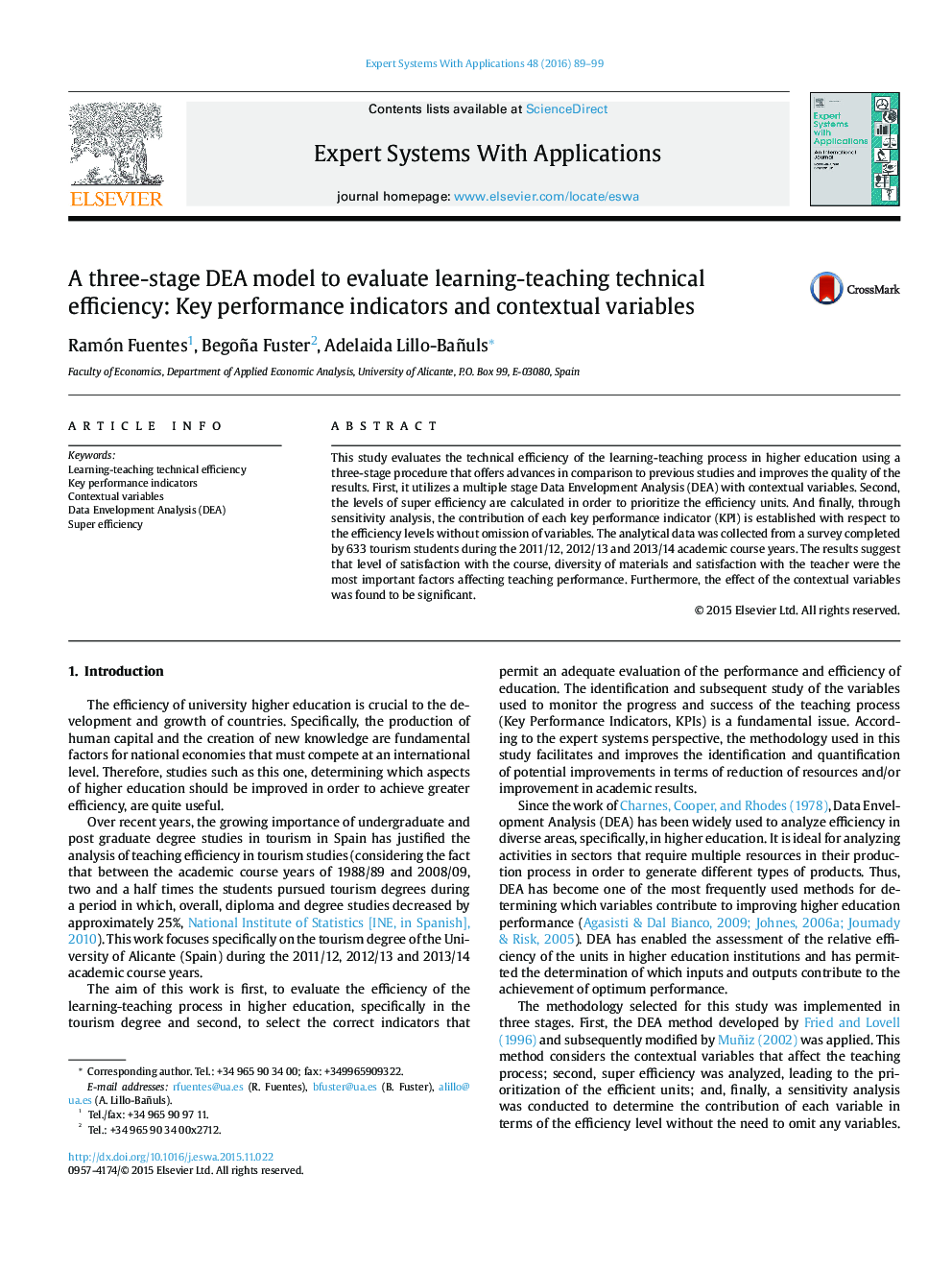| Article ID | Journal | Published Year | Pages | File Type |
|---|---|---|---|---|
| 384092 | Expert Systems with Applications | 2016 | 11 Pages |
•The main objective is to evaluate learning-teaching technical efficiency.•A three-stage Data Envelopment Analysis with contextual variables is used.•Super efficiency between efficient units is examined.•The key performance indicators and their influence have been identified.•The results also reveal that contextual variables are significant.
This study evaluates the technical efficiency of the learning-teaching process in higher education using a three-stage procedure that offers advances in comparison to previous studies and improves the quality of the results. First, it utilizes a multiple stage Data Envelopment Analysis (DEA) with contextual variables. Second, the levels of super efficiency are calculated in order to prioritize the efficiency units. And finally, through sensitivity analysis, the contribution of each key performance indicator (KPI) is established with respect to the efficiency levels without omission of variables. The analytical data was collected from a survey completed by 633 tourism students during the 2011/12, 2012/13 and 2013/14 academic course years. The results suggest that level of satisfaction with the course, diversity of materials and satisfaction with the teacher were the most important factors affecting teaching performance. Furthermore, the effect of the contextual variables was found to be significant.
